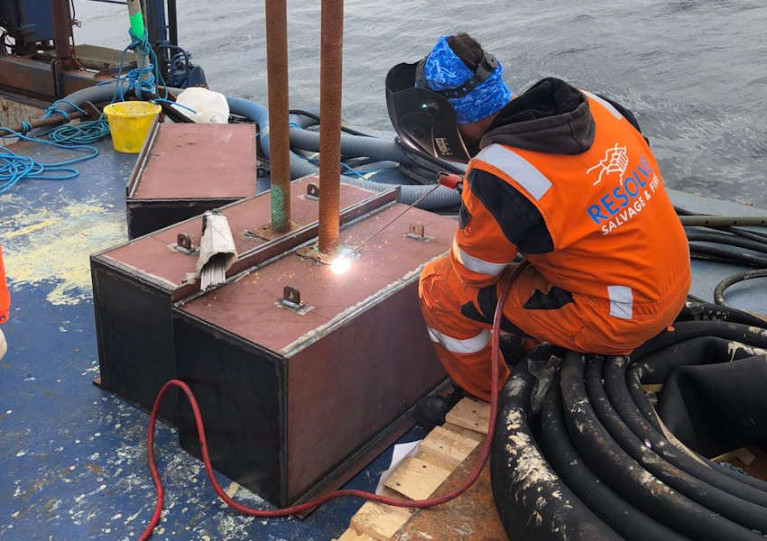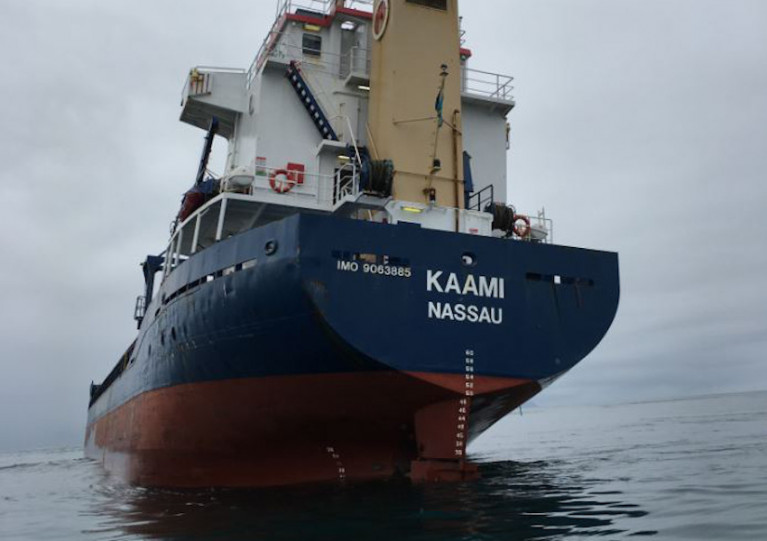Displaying items by tag: MV Kaami
Salvors successfully offloaded the last recoverable cargo from the grounded MV Kaami in western Scotland last Thursday, 30 April.
As previously reported on Afloat.ie, the MV Kaami ran aground in the Minch between Skye and Lewis on 21 March, just days after leaving Drogheda Port en route for Sweden.
The MV Kaami’s eight Russian crew were rescued within hours of the incident, but the 90m cargo vessel remains at the spot known locally as Eugenie Rock.
Work began last month to remove cargo from the vessel, and divers were able to access the hold to assess any internal damage.
Weather conditions during the early part of last week made it unsafe for the salvors to board the vessel and slowed down the salvage operation.
But more settled weather on Thursday allowed for some 30 tonnes of cargo to be removed and transferred to a landing craft for disposal.
The focus of the salvage operation is now on completing repairs to make the vessel watertight and to allow for it to be refloated.
Work Continues To Remove Cargo From Vessel Aground Off Scotland After Sailing From Drogheda
Work continues at pace to remove cargo from the MV Kaami which ran aground off Skye in western Scotland after sailing from Drogheda Port last month.
A further 22 skips of cargo were removed yesterday (Monday 20 April), meaning a total of 160 skips worth of cargo have now been taken ashore.
Divers have also now been able to access the hold of the vessel to begin internal damage assessment.
The ship remains aground in the Minch between Skye and Lewis.
Stephan Hennig, the Secretary of State’s Representative for Maritime Salvage and Intervention, said: “Thanks to good weather and sea conditions, progress is being made swiftly.
“The removal of so much cargo now means we’re getting closer to the next phase of the salvage which will focus on assessing the internal damage and attempting to temporarily repair damaged sections of the ship.”
As previously reported on Afloat.ie, an exclusion zone had been stablished around the Nassau-registered cargo ship after it ran aground at Eugenie Rock within days of leaving Drogheda Port on 21 March.
The vessel’s eight Russian crew were rescued from the spot some six nautical miles north-west of Duntulm on Skye.































































